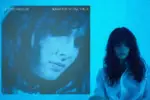The trouble started in June 2019, when Scott Borchetta — head of Big Machine Records — sold his label to Scooter Braun, a music manager with clients among the likes of Justin Bieber and Ariana Grande. In the deal, Borchetta included the master recordings of Taylor Swift’s first six albums. It was an unexpected and devastating blow to Swift, who took the conflict public, claiming that she was not offered the opportunity to buy back her masters and that Braun bullied her.
Feeling justifiably angry that two men would profit off music she wrote about her personal experiences, Swift decided to re-record and re-release her first six albums under her new label. She re-recorded her second album, “Fearless,” and released it on April 9 of this year. Most recently, on Nov. 12, she re-released her fourth album, “Red.”
Swift initially released “Red” in October 2012. Then, at 22 years old, she was a very different person and a very different public figure. The album documents her personal turmoil and triumphs, inspired by the intense and confusing feelings she felt in the aftermath of her breakup with Jake Gyllenhaal. “Red” also represents her potential as an artist; while she had not gone full pop yet — which she would do in her fifth album, “1989” — she wrote distinctly catchy electronic music for the first time on this album. It was a transitional period between Taylor Swift, the young, budding country artist, and Taylor Swift, the pop icon.
A couple of the singles actually sound better on the re-recorded album. For example, “We Are Never Ever Getting Back Together” and “I Knew You Were Trouble,” though flawed, still feel relevant and sharp. They are self-aware songs that Swift performs in a much more self-assured way today.
On the other hand, some songs sound noticeably more juvenile than the original versions. One of her pop singles, “22,” sounded charming and campy at the time of its release, but now it just comes off as bland. “Stay Stay Stay” is another song that doesn’t quite measure up. Both of these tracks draw attention to Swift’s improved lyricism in the years since: Her pop songs today are not only catchy, but they are also clever.
“All Too Well” remains an emotional powerhouse in Swift’s catalog. The original version capitalized on Swift’s storytelling ability, capturing vivid images of a failed relationship and explaining the reasons it fell apart with laser precision. On the re-recorded version, Swift delivers her best performance on the album, replacing the high, shrill vocals of the original with an even, deeper and more mature tone. Building up to the emotional crescendo of the song, she switches into a carefully-controlled head voice, and it is breathtaking.
In addition to the re-recorded version of “All Too Well,” Swift released the much-anticipated 10-minute version of the song, complete with even more intimate details about her relationship. The results here are mixed. There are certain lines that definitely could have been left out of the song. For example, the line where Swift compares herself to a “soldier, returning half [her] weight” is tipping the balance into melodrama. However, there are also some great lines as well, pointing out the age difference between them and the way this fed the tension in their relationship.
The short film she released to commemorate this 10-minute version also handled the song’s content masterfully. In a sneaky move, Swift chose Sadie Sink — age 19 — and Dylan O’Brien — age 30 — as the actors, imitating the nine-year age gap between Swift and Gyllenhaal at the time they dated: 20 and 29 years old, respectively. She also directed the film, mixing good memories and messy arguments against the backdrop of a beautiful autumn. It is an honest and evocative reflection of the situation, deserving of its hype.
A particularly nice collaboration to look back on is “Everything Has Changed,” recorded with Ed Sheeran. For Sheeran especially, everything has changed in the ensuing decade. Swift brought him into the mainstream, giving him exposure on this duet and on the accompanying tour. Now, at the end of the decade, he has achieved worldwide commercial success several times over and also managed to headline Wembley Stadium.
There is another duet on the album that presents a very different perspective, however. Swift originally wrote “Nothing New” — which was re-recorded with fellow pop artist Phoebe Bridgers — when it dawned on her that she was no longer a new artist. She poignantly described this feeling in a recent interview with Seth Meyers, comparing it to walking into a party and feeling like no one is excited to see you. Swift first reckoned with this feeling at 22, but the insecurity has followed her throughout her career.
In “Miss Americana,” a documentary Swift released to Netflix in 2020, she felt that the general public got tired of female performers over the age of 35 and expressed the need to enjoy her success while she was still allowed to. She also discussed the pressure that is put on female performers to continually reinvent themselves to stay relevant in the industry. It was a reminder that even the biggest pop star in the world faces serious double standards.
That is what makes Taylor’s re-released albums so emotionally potent. She has not only entered her 30s with “Folklore” and “Evermore” topping the charts and reasserting her songwriting chops, but she has also managed to bring new and old fans alike back to her old material. The themes of “Red” originally revolved around Swift reclaiming her freedoms and confidence after being belittled and neglected by a partner. “Red (Taylor’s Version)” is Taylor reclaiming her legacy and influence after many people tried to steal it from her; it’s an album of intense feeling that will echo down the line.

















